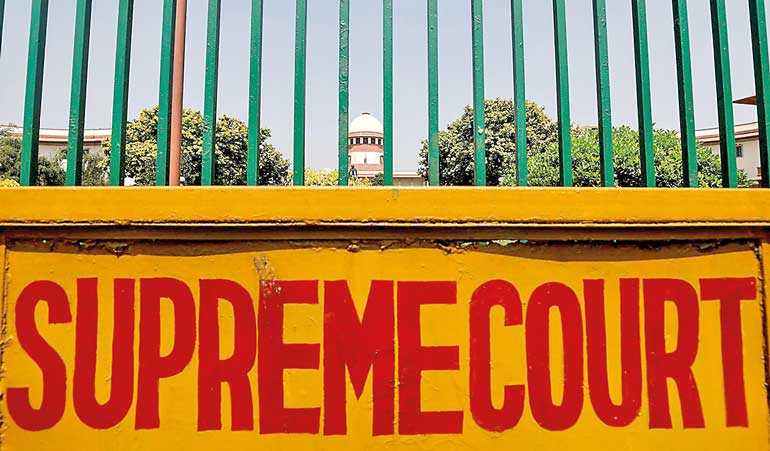Sunday Feb 22, 2026
Sunday Feb 22, 2026
Tuesday, 17 September 2019 00:00 - - {{hitsCtrl.values.hits}}

A signboard is seen outside the premises of Supreme Court in New Delhi - Reuters
NEW DELHI (Reuters) - India’s top court said on Monday the federal government should restore normal life in Kashmir as soon as possible, as a partial shutdown of the disputed region entered its 42nd day.
India stripped its portion of Muslim-majority Kashmir of autonomy and statehood on 5 August, shutting off phone networks and imposing curfew-like restrictions in some areas to dampen discontent.
Some of those curbs have been relaxed, but mobile communications in the Kashmir valley are largely still blocked, and more than a thousand people are likely to still be detained, according to official data.
“We direct Jammu and Kashmir to make the very best endeavor to make sure normal life returns,” Chief Justice Ranjan Gogoi said on Monday, after a panel of three judges heard several petitions relating to Kashmir, which is also claimed by Pakistan.
The court had previously said authorities there needed more time to restore order in Kashmir.
One of the Supreme Court judges, Sharad Arvind Bobde, said the situation in Kashmir, where thousands have died since an armed rebellion against Indian rule began three decades ago, as “a terrible state of affairs”.
A written submission by the government said restrictions were still required in order to maintain law and order, and that they had prevented widespread casualties seen in previous periods of unrest.
“Not a single life has been lost since the abrogation of Article 370,” said Tushar Mehta, India’s Solicitor General appearing on behalf of the government, referring to the action of India’s constitution granting autonomy to Jammu and Kashmir state.
Separately on Monday, local media reported Farooq Abdullah, a three-time former chief minister of the state, was detained in state capital Srinagar under the Public Safety Act, a special law that allows for detention of up to two years without trial, and has been criticised by rights groups as draconian. A current member of India’s parliament, 81-year-old Abdullah was previously under informal house arrest. Abdullah and Indian police officials in Kashmir did not respond or were not reachable for comment.